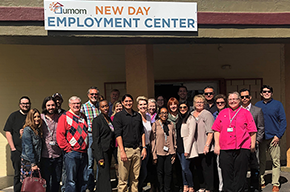Main menu
- About DES
- Services
- Basic Needs
- Adult Protective Services
- Food Assistance
- Nutrition Assistance
- How to Apply for Nutrition Assistance
- Frequently Asked Questions
- Change Report for Nutrition, Cash, and Medical Assistance Benefits
- Electronic Benefits Transfer (EBT) Card
- Health-e-Arizona Plus Application
- Publications for Nutrition, Cash, and Medical Assistance Benefits
- Work Requirements for Able-Bodied Adults Without Dependents
- Double Up Food Bucks
- Student Eligibility for SNAP
- How to Support Health in your Home
- Hunger Relief Programs
- Other Food Programs
- Information for DES Partners
- Other Resources
- Appeals
- Contact DES
- Customer Bill of Rights
- Limited English Proficiency
- Office of Program Evaluation
- USDA Programs Nondiscrimination Statements
- Nutrition Assistance
- Medical Assistance
- Refugee Resettlement
- Shelter and Housing
- Domestic Violence Support
- Sexual Violence Support
- Child and Family
- Disabilities
- Older Adults
- Employment
- Job Seekers
- Reentry Services
- Employer Resources
- Apprenticeship
- Unemployment - Individual
- Apply for UI Benefits
- File Your Weekly UI Claims
- ID.me Identity Verification
- Overpayments
- Reemployment Services and Eligibility Assessment (RESEA)
- Disaster Unemployment Assistance
- Pandemic Unemployment Assistance
- ARIZONA@WORK Employment Resources
- Income Tax Information
- Eligibility for Unemployment Benefits
- Work Search and Your Eligibility for Unemployment Benefits
- How Do I and Frequently Asked Questions
- Forms & Pamphlets
- Contact Arizona UI
- UI Benefit Fraud
- How To File An Appeal For UI Benefits
- UI Data Dashboard
- Working with a Disability
- Employment Service/Related Law Complaint
- Unemployment - Employer
- Applying for an Unemployment Insurance Tax Account Number
- Report Changes to Your Business
- Reporting Wages and Paying Unemployment Insurance Taxes
- Employment Taxes - Calculating Unemployment Taxes
- Unemployment Insurance Tax Forms
- Unemployment Insurance Tax Frequently Asked Questions
- Request UI Records
- Employer Handbook/ Unemployment Tax
- Employer Handbook/ Unemployment Benefit Claims
- AZ Unemployment Insurance Tax Survey
- Contact the Unemployment Tax Office
- Arizona Shared Work Program
- Senior Community Service Employment Program
- Veterans
- Workforce Innovation and Opportunity Act (WIOA)
- Arizona State Monitor Advocate
- Basic Needs
- How do I?
- Do Business with DES?
- Request a Vendor Meeting
- Frequently Asked Questions
- Learn about HIPAA?
- Request Assistance?
- Request DES Records?
- Submit Website Feedback?
- Work for DES?
- ADA Disability Rights/Reasonable Accommodations
- Volunteer?
- File a Discrimination Complaint
- Report Developmental Disabilities Fraud, Waste and Abuse
- Documents Center
- Media Center
- Office Locator
- Report Fraud
Job Seekers

ARIZONA@WORK Search for Jobs Apply for Unemployment
Meet with a Workforce Specialist from Home!
You can receive no-cost employment readiness services to help you increase your employability skills and find your next career at an ARIZONA@WORK office, by phone by calling 1-833-762-8196 or online through a Google Meet appointment.
(Workforce specialists are NOT able to assist with unemployment-related questions. For questions about an unemployment claim, call 1 (877) 600-2722.)
Employment Services

Receive no-cost assistance with creating a resume, preparing for job interviews, job searching, career assessments and goal setting, and more.

The Veterans Program provides support programs that increase opportunities for veterans to obtain employment and job training in Arizona.

The Vocational Rehabilitation (VR) program provides services and supports in order to assist persons with disabilities to meet their educational and employment goals.

Earn while you learn! Work towards an accreditation and receive a competitive salary immediately.

Senior Community Service Employment Program
Also known as the Mature Worker Program, SCSEP is available to assist low-income, unemployed individuals aged 55 years or older find employment.

Reentry employment readiness services are available to help previously incarcerated job seekers overcome barriers to employment.

Trade Adjustment Assistance (TAA)
If your job was outsourced to another country, TAA can help you get back to work!

Migrant and Seasonal Farmworker (MSFW)
The program assists Migrant and Seasonal farmworkers with making career decisions and working conditions.

SNAP E&T assists SNAP recipients in achieving their career goals by providing a broad range of services including reimbursements for employment-related needs.

Work Opportunity Tax Credit (WOTC)
Employers who hire individuals from specific target groups identified by the Department of Labor can earn up to $9,600 in Work Opportunity Tax Credits. If you belong to one of these groups, you may have an advantage over other job seekers.

Supplemental Nutrition Assistance Program Career Advancement Network (SNAP CAN) partners help SNAP recipients acquire the skills needed to obtain rewarding employment.

Wilson Fish TANF Coordination Refugee Program
The Wilson Fish TANF Coordination Refugee Program provides customized services to help eligible refugees navigate barriers and become economically self-sufficient.
Resources
More resources about Employment Services:
- Search for Jobs on AZ Job Connection
- Job Fairs
- Training Programs
- News
- Employment Service Policy Manual, Effective March 1, 2018
- Services for Job Seekers
- Services for Employers
- Find an Employment Service Office
About Employment Services
Employment Service is a network of public employment offices providing placement services for job seekers and labor force recruitment services for employers. The Employment Service focuses on providing a variety of employment-related labor exchange services including, but not limited to, job search assistance, job referral and placement assistance for jobseekers, re-employment services to Unemployment Insurance claimants, and recruitment services for employers with job openings.
The Department of Labor allocates money to the states, primarily from the Unemployment Trust Fund, with some funds coming from general revenues. The Unemployment Trust Fund consists of monies collected from employers' unemployment insurance payroll taxes.
Employment Service assistance is available to all job seekers and employers. The Employment Service refers individuals to jobs for which they are best qualified and provides other services without regard to race, color, religion, national origin, age, sex, or mental or physical status (disability) unrelated to job performance.
Employment Service helps in the community by: Providing community leaders with labor market information on the numbers and kinds of skilled workers in the area. Community leaders can use this information to attract industries to their localities. Having Employment Service representatives as members of the Local Workforce Development Boards to assist with planning programs operated by state, city, and other local government units. Through close contact with both employers and jobless workers, these representatives can help the community leaders identify the types of training that will prepare unemployed workers for needed local jobs. In addition, local employer committees have been formed to advise the Employment Service on ways to improve all of its services so it can be more responsive to the needs of the total community.
Local offices routinely receive employers' requests for workers to fill a wide range of jobs from entry level to highly qualified. Among them are professional, technical, and managerial positions, clerical and sales jobs, service occupations, manufacturing work, agricultural employment, machine trades, and skilled crafts.
Arizona State Resources
Pursuant to Title VI of the Civil Rights Act of 1964, the Americans with Disabilities Act (ADA) and other nondiscrimination laws and authorities, ADES does not discriminate on the basis of race, color, national origin, sex, age, or disability. Persons that require a reasonable modification based on language or disability should submit a request as early as possible to ensure the State has an opportunity to address the modification. The process for requesting a reasonable modification can be found at Equal Opportunity and Reasonable Modification



